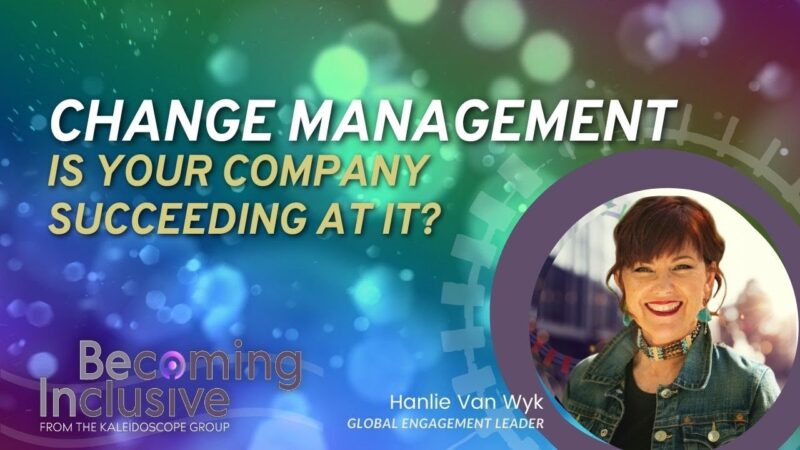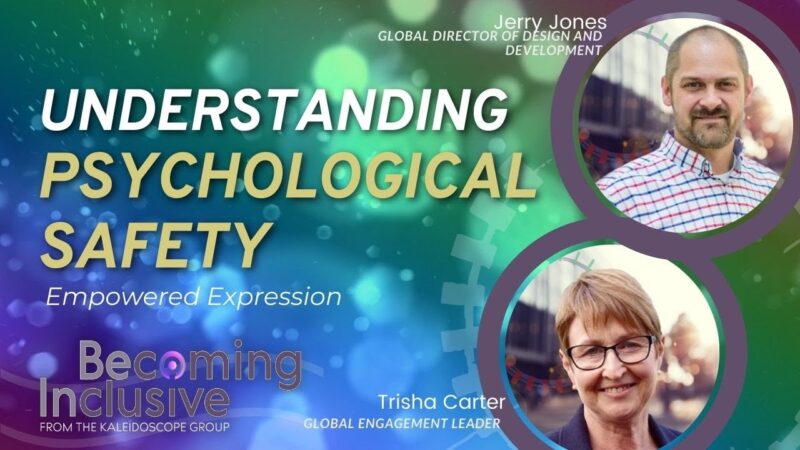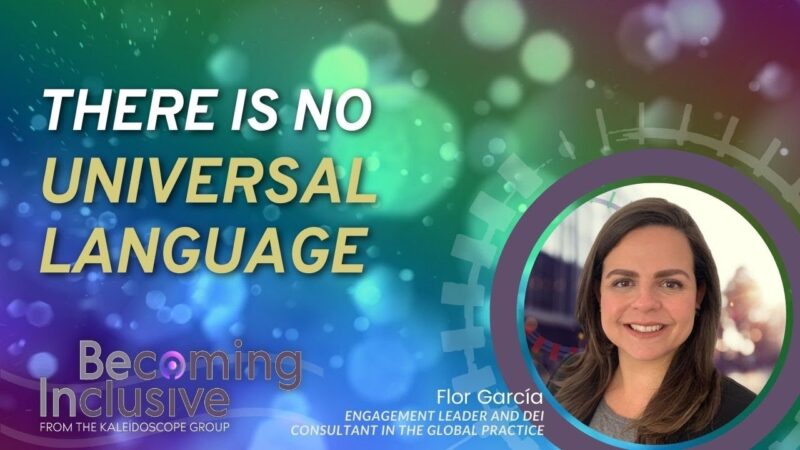Designing for Change
June 28, 2022
Audio Format
Would you rather to read through what’s said?
This is Becoming Inclusive from The Kaleidoscope Group, where we’re thinking differently about diversity, equity, and inclusion. For more empowered people at work. We’re committed to real change and that begins with real conversations. Welcome in.
In today podcast, the hosts welcomed Hanlie van Wyk, a global change management consultant, to talk about conscious change enablement using a “human forward” instead of a “process forward” approach.
Hosts Reggie Ponder and Katherine “Kat” Potts hosted Hanlie recently in another episode of the podcast but invited her back for further discussion on change management done right. The thrust of the conversation mainly focused on the behavioral aspects people undergo when confronted with change—be it major or minor. As human beings, we’re all constantly experiencing change and although it can cause anxiety or even outright fear, in most instances we adapt as needed. While we adapt to behavioral changes throughout our lifetimes, sometimes we resist them—and that is also just human nature.
Sustainable Change
In terms of DEI, this is a significant topic. Sustainable change takes a lot of time to develop a strategy aligned with the organization’s priorities and goals. It also needs metrics and benchmarks to evaluate the degree of change occurring. In developing those strategies, the human factor is critical. We can easily change a process or a procedure and mandate compliance, but if we do it thoughtfully we’re more likely to realize the sustainable change that really does move the needle from the DEI perspective.
According to Hanlie, behavioral change is not seen as something that requires practice and time for transitioning to desired new behaviors, especially as it relates to organizational culture. Culture, Hanlie says merely a “collection of values of the people within the company.” Kat followed with the point that we have to provide space for people that have been in the workforce longer and have adopted certain norms of professional behavior, only to be told that they have adopted new behaviors—allowing “grace and space” for behavior changes and new habit formation.
Competency
Considering the competency of people on a specific change is also important. To illustrate that point Reggie discussed his frustration with getting new terminology related to the LGBTQ+ community, including the “correct” use of pronouns. He admitted that he had been slow to use terminology, not as a passive-aggressive act of resistance, but simply because it’s new to him. This point is critical to truly developing diverse, equitable, and inclusive organizational cultures. People are more likely to adopt new behaviors if they are supported and coached, rather than reprimanded or scolded as they learn.
Coach, Change, & Design
Finally, the three agreed that it’s also important to explain to people how the change is good for the company or organization, not change for the sake of change or to force an agenda. Reggie summed up the conversation with these three points:
- Coach don’t cancel—allowing space for growth and grace when people make mistakes
- Change is dynamic—It’s always happening, but it’s not always designed consciously or with a specific intention
- Designing for Change—Entails thoughtful strategy with tactics, measures, and clearly established goals


